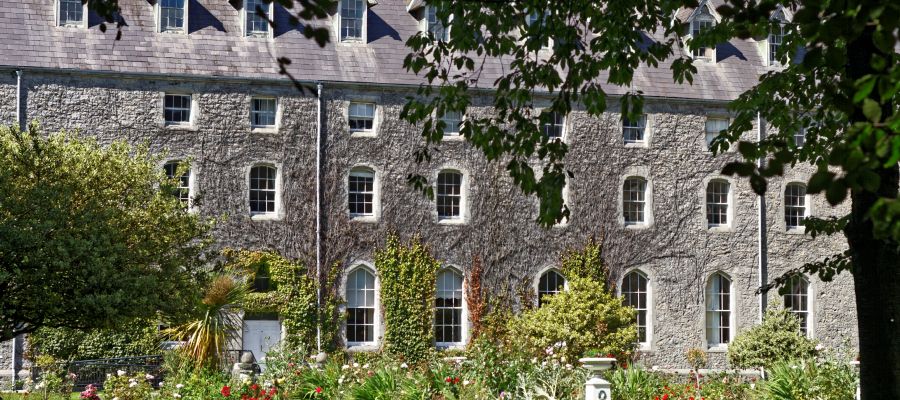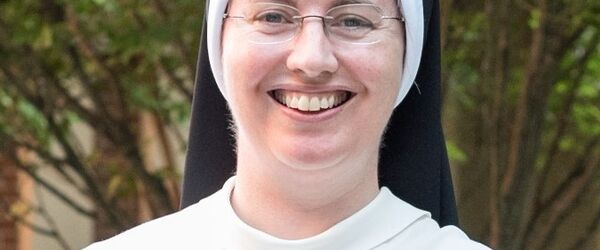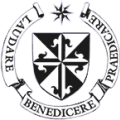
Student FAQ
Here we provide answers to the most frequently asked questions from prospective students. If you do not find an answer for your particular query here, feel free to contact us we would be delighted to hear from you.
Please refer to our How to Apply page for information.
Delivery is through 'blended' learning, with a mixture of onsite and online study. Attendance at semester launch days is required. In addition, each module has two study days and two tutorial days, which students must attend either in person at St Mary's Dominican Priory, Tallaght, Dublin 24, or later online. Ongoing support is available from a coordinator and in-depth help from specialist academic tutors.
Higher Education
We offer a variety of different courses please find detailed information on them here. If you register for our Higher Education courses, at the beginning of the semester (Launch Day) you will be introduced to the topics being covered in your module/modules as well as the details of the delivery methods. The subsequent fifteen weeks’ study is done from home, along with in-depth support from a dedicated coordinator and specialist academic tutors. You will be required to 'virtually' or 'physically' attend two study days and two tutorial days each semester. You will have to submit a written assignment during the semester and the semester concludes with a 2-hour written exam for each of your modules. You may sit the exam(s) in a designated location close to your home.
Audited Modules
If you are interested in enrolling in courses that do not require you to submit an academic essay and / or sit an exam, auditing a module may be just right for you. In the beginning of the semester, you will be given access to your module texts. Throughout the semester, you may keep a journal of reflective exercises. These exercises form an integral part of the instruction method. If you wish to receive a certificate of participation (unaccredited), the semester concludes with you submitting a 2,500 word reflective essay for feedback.
That depends! While each module covers a 15-week span (semester), a person may decide to study one module at a time or two modules together.
Students can choose to do a Higher Certificate (9 modules), an Ordinary BA (13 modules) or an Honours BA (17 modules). The Honours BA is achievable in four years. If they so wish, students may study at a more leisurely pace, in which case the completion time is longer.
Participants may also choose to study without formal assessment. Single subject certification is available for all modules. See more information in our courses section.
For more information on your chosen course refer to our courses section also you can download our prospectus or contact our Acting Director Rev Dr Fr Columba Toman OP email columba.toman@prioryinstitute.com or our Student Services Administrator Alicja Trykoszko email alicja.trykoszko@
If you are over 23 years of age you don’t need formal qualifications to undertake one of our courses. You will need to supply a 500-word account of why you would like to study theology. This can be as personal as you wish and may be handwritten or typed.
If you are under 23 you must have obtained at least Grade H5 (C3 higher level) in two papers and Grade 06 (D3 ordinary level) in four papers in the Leaving Certificate examination. The subjects must include either Irish or English.
Applicants under the age of 23 who present with other European/Non EU School Leaving Qualifications are assessed under the Institutes of Technology Central Evaluation forum (IOTCEF) which provides a central scoring system for applicants.
Please see more information in the application guidelines section including information about applying for accreditation of prior learning (APL).
The Institute’s courses are provided through the English language. Students whose first language is not English must provide evidence that their English language ability meets the standard for admission. Please discuss with our Course Leader Fr Columba Toman OP , email columba.toman@prioryinstitute.com
You need to have a basic knowledge of computer and Internet skills in order to be successful in an online course. Priory Institute students will require access to a reliable internet connection (preferably high speed) with browser, updated anti-virus and word processing software, media player capability and speakers or a headset.
You would be expected to study for approximately 8-10 hours per week per module. The amount of background reading you will do for each module is agreed with the academic tutor. Please refer to our Before You Apply page for more information.
If this happens, you must contact Student Services or our Programme Leader as soon as possible in writing advising that your circumstances have changed and request an extension.
For each module, you submit an essay and, at the end of the semester, sit a written examination.
For some modules other forms of continuous assessment may be required.
If students are unable to continue with their studies due to personal circumstances, they may apply to the Programme Leader for permission to defer the module(s) for a semester. Please contact fr Columba Toman OP, the Programme Leader directly.
All students enrolled with The Priory Institute are asked during the application process if they wish to share their contact details with other students. There is an online student forum for students to share ideas.
Our undergraduate courses are modular, the courses are made up of different combinations of the same 17 modules. This means they can be taken module-by-module and semester-by-semester to build credits towards different academic qualifications. Our courses section contains details of all the courses you can study.
Each module costs €550 when studied for academic credit. The introductory module to each of our courses 'Learning to Learn' is free of charge. There is an extra charge of €35 per module if a student wishes to be supplied with a printed copy of the Module Text.
For example; our Honours BA in Theology course consists of all 17 modules including the, free of charge, introductory module. The cost is therefore 16 x €550, €8,800. You pay as you go, module-by-module.
Students can also choose to audit our modules without gaining academic credit (no formal examinations or assignments). This costs €330 per module.
Find out more in our Study Costs section.
You can claim tax relief on fees paid for our courses in respect of any person as long as you have paid the qualifying fees. Please see our Study Costs section or you find information on Tax Relief for Tuition Fees in respect of Third Level education here revenue.ie.
The Priory Institute has a small Student Support Fund. The Fund is intended to afford some financial assistance to students of The Priory Institute’s distance learning programme in theology. Allocations from the Fund will be made on the basis of need and will go towards the cost of fees. The Fund is NOT intended to cover other expenses, such as the cost of books, living or travel expenses.
A student or prospective student must submit a written request for funding and must provide objective documentary evidence of her/his financial circumstances. It is important that an applicant give a full, true and documented account of her/his financial circumstances since allocations are made on the basis of financial need. Requests should be made to the Acting Director of the Priory Institute
Our courses are validated (and the degrees are awarded) by TU Dublin, which has delegated authority from QQI to confer these awards. Please see more in our Accreditation section.
Launch, study and tutorial days are held in St Mary’s Dominican Priory, Tallaght. Lectures delivered on these days are available online one week later. These days are held on Saturdays, see our Semester Calendar.
Launch Days
There is a launch day at the beginning of each semester and attendance at the launch day is mandatory. The lectures on launch day complement the module texts being studied online by the students and are designed to help students absorb the module course texts and put them into a wider context.
Study Days
In the same way the lectures on the study days complement the module texts being studied online by the students and are designed to help students absorb the module course texts and put them into a wider context. Each module has two study days built into its 15 week calendar.
Tutorial Days
The tutorial days prepare students for upcoming assignments and examinations. Each module has two tutorial days built into its 15 week calendar.
NB: Higher Education students must attend all study days and tutorial days either in person or online the following week. Further Education students may attend but their attendance is not obligatory.
Each module is moderated by an academic tutor who will deliver lectures on Launch Day and and Study Days and provide assistance on assignment titles and exam preparation on Tutorial Days. Academic tutors also provide assistance on matters arising out of the module text.
A co-ordinator is responsible for keeping in touch with students, to offer encouragement and ensure good progress.
The majority of courses are applied for online through the registration page. You must submit your application electronically. Please ensure that you enter your email information correctly because this address will be used to communicate updates to you.
An automatic email response confirming receipt of submitted form will be received once application has been submitted successfully.
All applications must be made online. Please refer to the How to Apply online section or phone + 353 1 4048124 for assistance or with any questions you may have about the procedure.
The closing date for course registration for Spring 2026 is February 10.
There are new intakes of students twice a year, in the Spring and Autumn.
Please see the When to Apply section. Applicants are advised to apply as early as possible prior to their chosen registration period.
No, you do not need to register separately, you are registered when your registration deposit has been paid and any required documents have been received and approved. Students must register every semester.
Registration takes place throughout the year with closing dates in September and in January for the Autumn and Spring semesters. Please see the When to Apply section.
The closing date for Spring 2026 is 10 February
Your theology qualification can open up many avenues to employment or further study. Many of our former graduates have gone on to work in pastoral ministry, chaplaincy, teaching and volunteering in parish and community work. Some have also gone on to pursue postgraduate education to masters and even doctoral level. See our Career Paths section.
We offer two postgraduate programmes. Please click if you would like to know about studying for our Master of Arts in Biblical Studies or Master of Arts in Aquinas Studies degrees.



